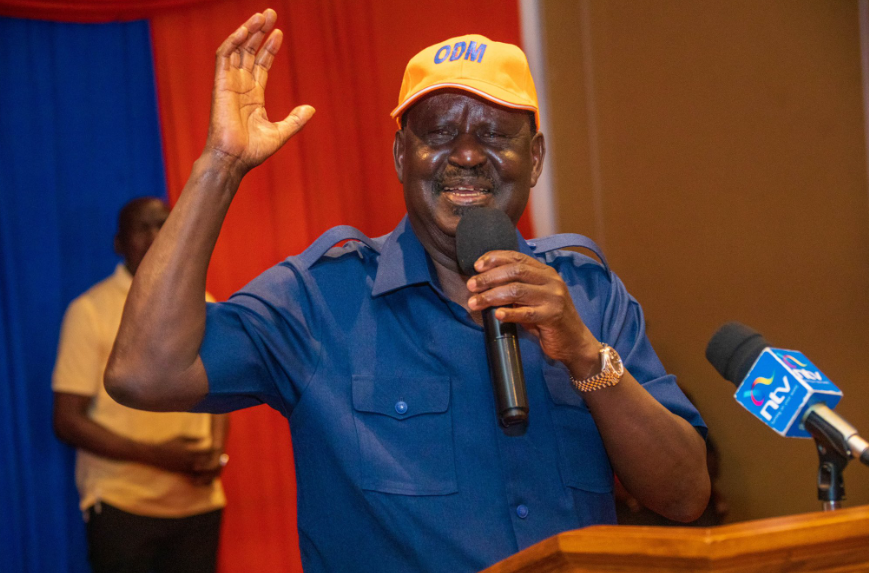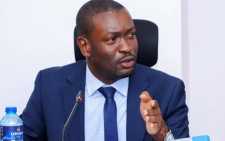Risks for ODM in hybrid role as partner

ODM’s paradoxical position – simultaneously an opposition minority in Parliament and a latent partner of the Kenya Kwanza regime – bears risks for both parties.
In principle, an opposition is tasked with holding the ruling government accountable, speaking out against policies they deem unfit, and ensuring that citizens’ interests are protected through robust debate.
However, by cooperating with this administration, ODM’s oversight role is effectively neutralised, curtailing the depth of parliamentary checks and balances that are foundational in democratic governance.
This quiet alignment with Kenya Kwanza diminishes the voice of millions who voted for ODM to represent a dissenting position in government, creating a situation where the distinction between government and opposition becomes increasingly blurred.
The legislative implications are equally significant. ODM, as a “minority”, continues to wield considerable sway in Parliament, offering a veneer of pluralism while tacitly operating in tandem with the government. This hybrid role has been criticised for aiding and abetting a culture where leaders prioritise power preservation over the empowerment of ordinary citizens.
Citizens expect that power struggles within Parliament and government represent genuine public-interest discourse, but the current dispensation betrays this expectation, instead advancing the interests of political elites rather than those of the average citizen.
It is the conundrum that makes a mockery of our leaders, who now want to advance a dichotomy between public and national interests, a classic self-preservative discourse where, when the establishment can’t address the public interest, they hide behind the state’s monopoly of ideological State apparatus including security to bandy the national interest. In democratic discourse, national interests are goals set by the government as essential for the well-being of the State.
A government, in guaranteeing the interest of the State, cannot serve or purport to serve any interest other than the public interest.
Therefore, whereas the removal of Gachagua, a polarising figure, from this administration possibly addressed the national interest and allows Kenya Kwanza to reposition itself as a coalition more palatable to a broader voter base, the public-interest dimension of such moves must be made clear.
This move also signals the potential reconfiguring of Kenya Kwanza’s leadership team, possibly even as an invitation for ODM to inch closer to executive influence within the KK framework.
For Odinga and ODM, this move could be attractive, allowing them to secure a closer foothold within the regime and making their influence even more integral to the success of Kenya Kwanza.
The crux, however, is whether the success of KK in pushing its agenda, which ODM now plays a critical role in advancing, aligns with the interest of Kenyans.
Nevertheless, this collaboration blurs the line between opposition and government even further, possibly leaving ODM without a clear role in the eyes of its electorate, undermining ODM’s long-established tradition as a voice of resistance and reform.
Optimists of the ODM agenda argue that reforms within the establishment advance the very interest of the common citizenry with tangible outcomes as opposed to perpetual clarion calls from the margins of the strappings of power.
Reflecting on other democracies, we can glean insights from the US. In US politics, bipartisanship often serves as a litmus test of political maturity, as witnessed in cross-party negotiations that, while rare, underscore the need for checks and balances.
However, American bipartisanship does not negate the opposition’s role in holding government to account – a balance that Kenya’s ODM-KK alliance currently lacks.
The lesson here is that an opposition’s credibility depends on its ability to critique while still working constructively with the government. Kenya’s situation, by contrast, sees ODM’s opposition status diluted, with no coherent balance between cooperation and accountability.
Bipartisanship can indeed be a strength, but it requires clear boundaries; Kenya risks blurring these boundaries at the cost of its democratic resilience.
— The writer is a PhD student in Political Communication















